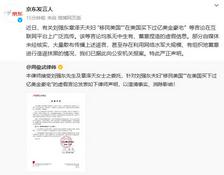昨天,我在摩根斯坦利的网站上,看到了谢国忠对中国经济的一篇分析。他提出,中国经济的快速增长,有部分原因是以人民福利的下降换来的。真是卓识啊!
我完全同意他的思路。首先,中国经济是投资导向型的,就是说经济增长主要靠投入增加。随着经济规模越来越大,想要继续增长,所需的投资也必然越来越多。但是,政府拿不出那么多新增资源来投资。
怎么办呢?就把原本应由公共部门承担的社会福利支出,转嫁到了普通家庭身上,主要是住房、教育和医疗这三项。国有企业因此节省了大量支出,得以将这部分省下的资源用来投资;而普通家庭为了应对这些新增支出,不得不提高储蓄率,新增储蓄通过银行系统也转化为投资。正是这些投资支持了中国经济的进一步增长,这就是过去10年中发生的事情。
于是,就出现了一种可悲的分离。中国经济增长越快,人民感到的经济压力就越大,各种社会问题丛生。
谢国忠因此断言,下一步中国经济的发展将有质的变化,发展的重点将从经济增长转向解决社会问题。它的深层含义是,中国经济增长的动力必须从投资和出口转为消费。
他的这篇分析,我没有时间全部译成中文。我把最重要的段落译了出来(请用鼠标往下拉)。
======================
China: Addressing Backlash Against Reform
中国:改革的成本
Andy Xie (Hong Kong)
谢国忠(香港)
Summary & Conclusions
结论
China is experiencing the most intense debate in a decade on the merits of its reform and open-door policy. Rising inequality and rising household financial burdens are the triggers. The debate is another factor that will shift China's priority from growth to non-growth issues, I believe.
改革开放政策到底是否正确?中国正在经历10年来最激烈的争论。导火索是越来越大的贫富分化和家庭生活负担。我认为,这场争论是使中国经济发展首要问题从经济增长转向非经济增长问题的因素之一。
The growth target in the 11th five-year plan (2006-2010) is 7.5%, compared with 9.5% for the past 25 years. By setting a low target, the government has room to focus on urgent issues, such as income inequality, education, healthcare, housing, and pollution. By addressing these issues, the Chinese economy will shift away from investment and exports to consumption, in my view.
过去25年中,平均经济增长速度是9.5%,而第11个五年计划(2006-2010)中的经济增长目标只有7.5%。因为发展速度目标降低了,政府就有更大的主动来关注那些迫切的问题,比如贫富分化、教育、医疗、住房和污染。在我看来,在解决这些问题的过程中,中国经济的动力将从投资和出口转向消费。
Debating the reform and open-door policy
对改革开放政策的争论
China's GDP expanded by 57.3% in constant price terms and 83.8% in current price terms between 2000 and 2005, according to China's National Statistics Bureau. Negative sentiment towards the economy has increased rapidly, despite the fast growth. The latest manifestation of this is the resurgence of anti-reform sentiment.
Extreme income inequality and other ills in China's economy have always elicited strong opinions. However, until recently, the reform and open-door policy had not been questioned seriously for a decade. The current debate centres on whether the reforms have caused the problems and have gone too far -- that is, questioning the merit of the reform and open-door policy.
One concrete example of the backlash is the negative sentiment towards the sales of state-owned assets to foreign capital. Private equity firms, for example, are facing more difficulty in acquiring state-owned enterprises. Even the IPOs of state-owned companies in Hong Kong are being questioned. The rallying cry is that China is selling its assets to foreign capital too cheaply.
Concerns about structural problems in the economy are often linked to doubts about foreign capital, since the rising influence of foreign capital in China's economy is one of the most visible signs of its open door policy. I estimate that one-fifth of China's GDP (over half in the export sector) is produced by foreign-owned firms, which would make China the most open large economy in the world.
Negative sentiment over foreign capital seems to derive mostly from a small elite, worried that foreign capital may be undermining the development of indigenous companies. The lack of internationally competitive Chinese firms has fanned the flames of such suspicion.
The sentiment towards foreign capital among the population is mostly positive. Most local governments still tout the amounts of foreign capital that they attract to their populations.
'Retreating is no way out'
"倒退没有出路"
China's top leaders have reaffirmed their commitment to the reform and the open-door policy. The Premier has stated that retreating is no way out. The risk of a substantial policy reversal is still low, in my view. Despite the ills in the economy, most people are far better off than 15 years ago, when China was still quite closed. There is little popular support for a step backwards.
While the public at large support the reform and open-door policy, they also want their concerns to be addressed. I believe the main concerns are (1) rural poverty, (2) rising income inequality, (3) escalating costs of education and healthcare, (4) declining property affordability, (5) pollution, and (6) work safety. Public demand for government action on these issues looks likely to escalate in the coming years.
China's economic policy has tended to be about sustaining fast growth. Whenever growth has looked like slackening, the government has introduced another wave of reforms to revive momentum. China has trusted in growth as the solution for the country's problems.
Developments in the current boom have shaken this faith in growth. Despite the magnitude of the boom, popular discussions about the economy relate mostly to escalating problems rather than the accomplishments of growth (e.g. infrastructure development). This shift in sentiment is likely to have a significant impact on China's policy development in the coming years, I believe.
The growth target in the 11th five-year plan (2006-2010) is 7.5%, compared with a realized growth rate of 9.5% over the past 25 years. The government's aim in setting a relatively low target is to leave room to address non-growth issues. The 11th five-year plan is likely to be a period of consolidation for the Chinese economy, in my view.
Over the next five years, I think the Chinese government needs to implement policies to address the issues that negatively affect livelihoods. If the problems continue to escalate, the doubts about China's reform and open-door policy could spread from a small elite to the masses.
Diverging trends of economy and household welfare
经济增长与国民福利的分离
The fixation with growth is to blame for many of today's problems. To mobilize resources to support investment-led growth, central and local governments have been shifting financial burdens to the masses. Education, healthcare and housing are the most important items. Merely 10 years ago, most people took for granted that the public sector would finance these three necessities. Today, they have come to represent the biggest outlays in household expenditure. This is why, despite income growth, most people feel under more pressure than they did 10 years ago.
不健康的经济增长方式带来了很多问题。为了支持投资导向的经济增长,必须投入越来越多的资源,中央和地方政府就把筹集资源的负担转嫁到了社会大众身上。教育、医疗和住房是其中最主要的项目。仅仅在10年前,大多数人都认为国家会理所当然的提供这三种必需品。但是今天,这三项支出却成了家庭消费中的最大项目。这就是为什么,尽管收入在增长,大多数人却感到比十年前的压力更大了。
As the state sector has shed its burdens, it has used its improved financial situation to list assets on the stock market and increase investment. The rise in expenditure on infrastructure, for example, is due partly to the state sector shifting its financial burdens to the household sector.
当国有企业卸走了它的负担后,财务状况得到了改善,于是国有企业增加了投资,到证券市场上上市融资。比如,基础设施的投入增加,部分原因就是国有部门将其财务负担转嫁到普通家庭身上。
The privatization of the housing market has played an important role in increasing investment. Sales of residential properties increased from 2% of GDP in 1998 to 6.2% in 2005. As household income is about 56% of GDP, this implies that property purchases equate to around 11.1% of household income. The fear of rising property prices is a major driver of rising demand for properties. This item clearly features very prominently in household expenditure, but did not exist 10 years ago.
在投资增加的过程中,住房市场私有化扮演了一个很重要的角色。住宅销售从1998年GDP的2%上升到了2005年的6.2%。因为家庭收入大约是GDP的56%,所以这表明家庭要用其收入的11.1%来购买住房。房地产的需求上升,很大程度上是因为人们害怕房地产价格会不断上涨。这个开支现在在家庭支出中扮演重要角色,但是10年前它是不存在的。
The 1Q06 central bank survey on urban consumption and saving behaviour showed that willingness to consume has reached a historical low and education expenditure is the principal deterrent against consumption. China's education system has a serious flaw, in my view. Schools are state-owned monopolies, but have flexibility when it comes to charging students. Considering the importance that Chinese households attach to education, schools have great pricing power to raise charges on all sorts of pretexts. Chinese schools behave neither like public schools, which have a mission to serve, nor private schools, which must compete to succeed.
2006年第一季度,中央银行对城镇居民消费和储蓄行为的调查显示,消费意愿达到了历史上的最低点,人们不愿消费的首要原因是教育费用。在我看来,中国的教育体系有一个很重大的缺点。学校都是国有垄断的,但是却有权利自主决定如何对学生收费。考虑到中国家庭对教育的重视,学校会以各种借口运用其定价权来提高费用。中国的学校既不像提供义务教育的公立学校,也不像必须靠教育质量来确保生存的私立学校。
The latest report from the World Health Organization ranks China fourth from bottom among over 190 countries on social equity of healthcare. China had a healthcare system completely funded by the government only 10 years ago. The dramatic reversal has had a traumatic impact on livelihoods. Similar to schools, Chinese hospitals are state-owned monopolies that have pricing flexibility. In healthcare, the bargaining position of the patient is essentially nil. It is not surprising that the current system is the cause of considerable resentment.
世界卫生组织的最新医疗公平的报告,将中国在190个国家中列在倒数第四位。仅仅在10年前,中国的医疗体系完全由政府来承担。体制的变化对普通人的生活造成了灾难性的影响。同教育体系相类似,中国的医院也是国有垄断的,且有价格自主权。病人对价格几乎完全没有异议能力。现在的医疗体系在人民中造成巨大怨恨,是毫不奇怪的。
The new and large burdens from shouldering education, healthcare and housing expenses explain why China's impressive growth has not generated the same increase in household welfare -- because the growth has taken place partly at households' expense. The China Youth Daily recently published a survey showing that 85.3% of the population feel a heavier financial burdens now than 10 years ago.
在教育、医疗和住房上新增的开支不断增大,解释了为什么中国引人注目的经济增长不能在国民福利上体现出来,因为这种经济增长一部分是以国民福利为代价而换来的。《中国青年报》最近公布的一项调查显示,85.3%的人感到现在比10年前经济负担更重。
The contrast between economic growth and household welfare is due to the three 'mountains' of education, healthcare and housing, which weigh down on household pocketbooks. Indeed, one major reason behind China's fast economic growth is the shift in these financial burdens from the state to the household sector.
经济增长与国民福利分离的原因是"三座大山":教育、医疗和住房。它们压在普通家庭的钱包上。实际上,中国经济快速增长背后的一个主要原因就是,将社会福利支出转移到了普通家庭的身上。
Policy implications
政策建议
Change appears to be in the air. The recently completed National People's Congress focused on the big social issues rather than growth per se. I expect most policy changes in the coming months to address the imbalances in China's economy.
The first area likely to see action move is minimum wages. The city of Shenzhen has just announced an increase in its minimum wage from Rmb 690/month to Rmb 800/month. Senior government leaders are increasingly expressing support for increased minimum wages. I see this as a key ingredient in addressing China's economic imbalances.
More affordable housing is the next objective that needs to be met to increase household welfare, in my view. Many cities are talking about this, but not doing enough, because such a solution is not sufficiently profitable for either property developers or city governments. I would expect to see some new policies implemented this year.
The central government is targeting commercial corruption in hospitals and schools as a temporary measure to respond to popular unhappiness. However, reforms are necessary to make these two sectors function efficiently on their own. I believe China needs to introduce government-funded basic education and healthcare and to promote private capital market competition as much as possible to make these two industries efficient.
京东创始人刘强东和其妻子章泽天最近成为了互联网舆论关注的焦点。有关他们“移民美国”和在美国购买豪宅的传言在互联网上广泛传播。然而,京东官方通过微博发言人发布的消息澄清了这些传言,称这些言论纯属虚假信息和蓄意捏造。
日前,据博主“@超能数码君老周”爆料,国内三大运营商中国移动、中国电信和中国联通预计将集体采购百万台规模的华为Mate60系列手机。
据报道,荷兰半导体设备公司ASML正看到美国对华遏制政策的负面影响。阿斯麦(ASML)CEO彼得·温宁克在一档电视节目中分享了他对中国大陆问题以及该公司面临的出口管制和保护主义的看法。彼得曾在多个场合表达了他对出口管制以及中荷经济关系的担忧。
今年早些时候,抖音悄然上线了一款名为“青桃”的 App,Slogan 为“看见你的热爱”,根据应用介绍可知,“青桃”是一个属于年轻人的兴趣知识视频平台,由抖音官方出品的中长视频关联版本,整体风格有些类似B站。
日前,威马汽车首席数据官梅松林转发了一份“世界各国地区拥车率排行榜”,同时,他发文表示:中国汽车普及率低于非洲国家尼日利亚,每百户家庭仅17户有车。意大利世界排名第一,每十户中九户有车。
近日,一项新的研究发现,维生素 C 和 E 等抗氧化剂会激活一种机制,刺激癌症肿瘤中新血管的生长,帮助它们生长和扩散。
据媒体援引消息人士报道,苹果公司正在测试使用3D打印技术来生产其智能手表的钢质底盘。消息传出后,3D系统一度大涨超10%,不过截至周三收盘,该股涨幅回落至2%以内。
9月2日,坐拥千万粉丝的网红主播“秀才”账号被封禁,在社交媒体平台上引发热议。平台相关负责人表示,“秀才”账号违反平台相关规定,已封禁。据知情人士透露,秀才近期被举报存在违法行为,这可能是他被封禁的部分原因。据悉,“秀才”年龄39岁,是安徽省亳州市蒙城县人,抖音网红,粉丝数量超1200万。他曾被称为“中老年...
9月3日消息,亚马逊的一些股东,包括持有该公司股票的一家养老基金,日前对亚马逊、其创始人贝索斯和其董事会提起诉讼,指控他们在为 Project Kuiper 卫星星座项目购买发射服务时“违反了信义义务”。
据消息,为推广自家应用,苹果现推出了一个名为“Apps by Apple”的网站,展示了苹果为旗下产品(如 iPhone、iPad、Apple Watch、Mac 和 Apple TV)开发的各种应用程序。
特斯拉本周在美国大幅下调Model S和X售价,引发了该公司一些最坚定支持者的不满。知名特斯拉多头、未来基金(Future Fund)管理合伙人加里·布莱克发帖称,降价是一种“短期麻醉剂”,会让潜在客户等待进一步降价。
据外媒9月2日报道,荷兰半导体设备制造商阿斯麦称,尽管荷兰政府颁布的半导体设备出口管制新规9月正式生效,但该公司已获得在2023年底以前向中国运送受限制芯片制造机器的许可。
近日,根据美国证券交易委员会的文件显示,苹果卫星服务提供商 Globalstar 近期向马斯克旗下的 SpaceX 支付 6400 万美元(约 4.65 亿元人民币)。用于在 2023-2025 年期间,发射卫星,进一步扩展苹果 iPhone 系列的 SOS 卫星服务。
据报道,马斯克旗下社交平台𝕏(推特)日前调整了隐私政策,允许 𝕏 使用用户发布的信息来训练其人工智能(AI)模型。新的隐私政策将于 9 月 29 日生效。新政策规定,𝕏可能会使用所收集到的平台信息和公开可用的信息,来帮助训练 𝕏 的机器学习或人工智能模型。
9月2日,荣耀CEO赵明在采访中谈及华为手机回归时表示,替老同事们高兴,觉得手机行业,由于华为的回归,让竞争充满了更多的可能性和更多的魅力,对行业来说也是件好事。
《自然》30日发表的一篇论文报道了一个名为Swift的人工智能(AI)系统,该系统驾驶无人机的能力可在真实世界中一对一冠军赛里战胜人类对手。
近日,非营利组织纽约真菌学会(NYMS)发出警告,表示亚马逊为代表的电商平台上,充斥着各种AI生成的蘑菇觅食科普书籍,其中存在诸多错误。
社交媒体平台𝕏(原推特)新隐私政策提到:“在您同意的情况下,我们可能出于安全、安保和身份识别目的收集和使用您的生物识别信息。”
2023年德国柏林消费电子展上,各大企业都带来了最新的理念和产品,而高端化、本土化的中国产品正在不断吸引欧洲等国际市场的目光。
罗永浩日前在直播中吐槽苹果即将推出的 iPhone 新品,具体内容为:“以我对我‘子公司’的了解,我认为 iPhone 15 跟 iPhone 14 不会有什么区别的,除了序(列)号变了,这个‘不要脸’的东西,这个‘臭厨子’。









